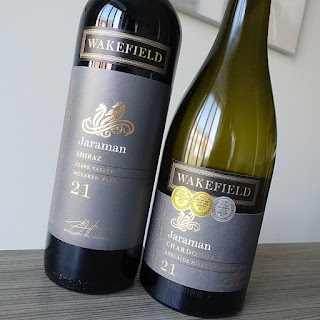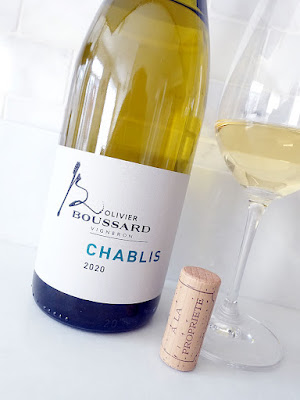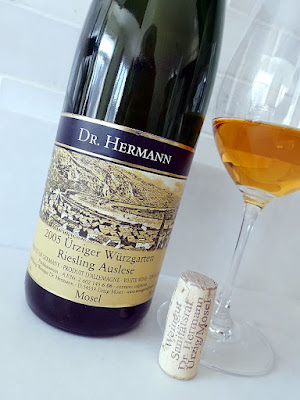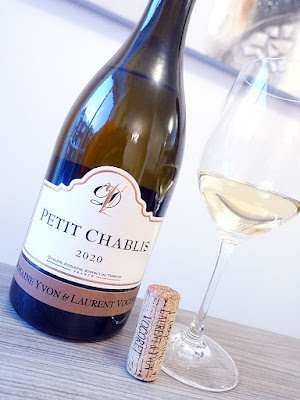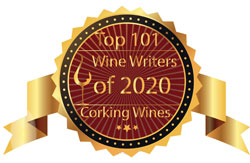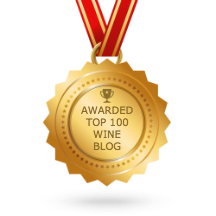wine reviews are a pair of lovely, consistently well-made wines from Australia that are arriving together this weekend in the LCBO VINTAGES New Release Collection and will be widely available across Ontario by this .
These wines are produced by Wakefield Wines, an Australian winery situated in the Clare Valley wine region in South Australia that is known for producing premium wines and gained a reputation for its commitment to quality and craftsmanship. It was established in 1969 by Bill Taylor Sr., a renowned wine merchant who was inspired by the producers of Bordeaux and had a vision of crafting his own family estate wines that rival the best in world. The family found the perfect plot of land on July 20, 1969, by the Wakefield River in South Australia's Clare Valley and began their quest to establish a family estate. Just as Neil Armstrong took mankind's first steps on the moon on this day, Bill Taylor Sr. took his first steps on this land to create his family estate wines.
Today, Wakefield Wines is led by brothers Mitchell, Justin, and Clinton, the third generation of the Taylor family. Together, they carry on their grandfather's tradition and staying true to their core values of authenticity and craftsmanship. The Taylor family continues its dedication to crafting wines of exceptional quality, while also implementing sustainable viticultural practices and embracing innovative winemaking techniques. The Taylor family has successfully continued Bill Taylor Sr.'s vision as representatives of Wakefield Wines and the Clare Valley. Their love for winemaking, keen eye for detail, and commitment to excellence have made Wakefield Wines a renowned producer of top Australian wines.
Both of these wines are from their Jaraman range where Wakefield searches for parcels of extraordinary fruit from celebrated Australian wine regions that are renowned for a particular variety to craft wines that showcase their distinctive regional characteristics and style. The winemakers ensure that the distinct regional characteristics are preserved and enhanced, with the fruit acting as the star and any winemaking influence the supporting act. With skill and dedication, the winemakers at Wakefield maintain their philosophy of respecting the fruit.
From a near-perfect vintage, let's see how this 2021 Chardonnay and Shiraz wines from Australia are tasting tonight...
Crafted with Chardonnay from Adelaide Hills (61%) and Clare Valley (39%) fruit, the free-run juice was fermented in French oak (60% new and the rest in a combination of 2 and 3 year old) barrels. It was aged for 8 months in French oak before both regional parcels were blended and prepared for bottling and enclosed by screw cap. The medium-high intensity nose is rich and fragrant with lovely stone fruit, apple, lemon citrus, pear, and buttery aromas accented with flinty mineral and vanilla oak spice notes. It's medium-full to full-bodied on the rich palate with lovely, ripe, lightly honeyed flavours of apple, lemon citrus, pear, and vanilla oak spice. Clean and well-balanced with fresh, juicy acidity, it's also nicely textured and lightly spicy on the mid-palate. Flinty mineral and vanilla notes linger on the long, very satisfying finish. Highly recommended buy! Score: 90 pts
WAKEFIELD JARAMAN SHIRAZ 2021 - Clare Valley/McLaren Vale, South Australia (#377036) (XD) - $24.95
This Shiraz is crafted with fruit from Clare Valley (54%) and McLaren Vale (46%) and matured for an average of 12 months in a mix of coopers' American oak hogsheads (30% 1 year old and 70% 2-3 year old) before being bottled by screw cap. Fragrant, perfumed, and highly aromatic, this has a lovely, spicy, dark fruited nose of ripe blackberry, dark currant, dark cherry, minty herb, and oak spice, with savoury undertones. On the ripe, medium-full bodied palate it is dry and spicy with blackberry, dark cherry, savoury wood spice, and pepper flavours backed by juicy, well-balanced acidity and smooth, supple, and gently grippy tannins. Dark fruited, spicy, peppery, and savoury earth notes linger on the long, balanced, and well-structured finish. Highly recommended buy! Score: 90 pts
Other lovely wines by Wakefield Wines can be found at the LCBO or through their Agent - Profile Wine Group.
These wines are produced by Wakefield Wines, an Australian winery situated in the Clare Valley wine region in South Australia that is known for producing premium wines and gained a reputation for its commitment to quality and craftsmanship. It was established in 1969 by Bill Taylor Sr., a renowned wine merchant who was inspired by the producers of Bordeaux and had a vision of crafting his own family estate wines that rival the best in world. The family found the perfect plot of land on July 20, 1969, by the Wakefield River in South Australia's Clare Valley and began their quest to establish a family estate. Just as Neil Armstrong took mankind's first steps on the moon on this day, Bill Taylor Sr. took his first steps on this land to create his family estate wines.
Today, Wakefield Wines is led by brothers Mitchell, Justin, and Clinton, the third generation of the Taylor family. Together, they carry on their grandfather's tradition and staying true to their core values of authenticity and craftsmanship. The Taylor family continues its dedication to crafting wines of exceptional quality, while also implementing sustainable viticultural practices and embracing innovative winemaking techniques. The Taylor family has successfully continued Bill Taylor Sr.'s vision as representatives of Wakefield Wines and the Clare Valley. Their love for winemaking, keen eye for detail, and commitment to excellence have made Wakefield Wines a renowned producer of top Australian wines.
Both of these wines are from their Jaraman range where Wakefield searches for parcels of extraordinary fruit from celebrated Australian wine regions that are renowned for a particular variety to craft wines that showcase their distinctive regional characteristics and style. The winemakers ensure that the distinct regional characteristics are preserved and enhanced, with the fruit acting as the star and any winemaking influence the supporting act. With skill and dedication, the winemakers at Wakefield maintain their philosophy of respecting the fruit.
From a near-perfect vintage, let's see how this 2021 Chardonnay and Shiraz wines from Australia are tasting tonight...
Tasting Notes:
WAKEFIELD JARAMAN CHARDONNAY 2021 - Adelaide Hills/Clare Valley, South Australia (#18921) (XD) - $24.95Crafted with Chardonnay from Adelaide Hills (61%) and Clare Valley (39%) fruit, the free-run juice was fermented in French oak (60% new and the rest in a combination of 2 and 3 year old) barrels. It was aged for 8 months in French oak before both regional parcels were blended and prepared for bottling and enclosed by screw cap. The medium-high intensity nose is rich and fragrant with lovely stone fruit, apple, lemon citrus, pear, and buttery aromas accented with flinty mineral and vanilla oak spice notes. It's medium-full to full-bodied on the rich palate with lovely, ripe, lightly honeyed flavours of apple, lemon citrus, pear, and vanilla oak spice. Clean and well-balanced with fresh, juicy acidity, it's also nicely textured and lightly spicy on the mid-palate. Flinty mineral and vanilla notes linger on the long, very satisfying finish. Highly recommended buy! Score: 90 pts
WAKEFIELD JARAMAN SHIRAZ 2021 - Clare Valley/McLaren Vale, South Australia (#377036) (XD) - $24.95
This Shiraz is crafted with fruit from Clare Valley (54%) and McLaren Vale (46%) and matured for an average of 12 months in a mix of coopers' American oak hogsheads (30% 1 year old and 70% 2-3 year old) before being bottled by screw cap. Fragrant, perfumed, and highly aromatic, this has a lovely, spicy, dark fruited nose of ripe blackberry, dark currant, dark cherry, minty herb, and oak spice, with savoury undertones. On the ripe, medium-full bodied palate it is dry and spicy with blackberry, dark cherry, savoury wood spice, and pepper flavours backed by juicy, well-balanced acidity and smooth, supple, and gently grippy tannins. Dark fruited, spicy, peppery, and savoury earth notes linger on the long, balanced, and well-structured finish. Highly recommended buy! Score: 90 pts
Other lovely wines by Wakefield Wines can be found at the LCBO or through their Agent - Profile Wine Group.
